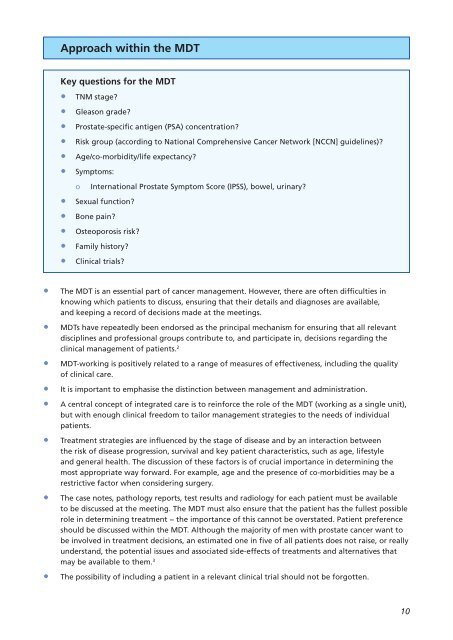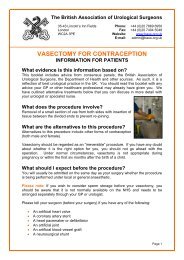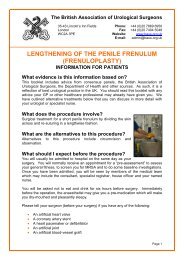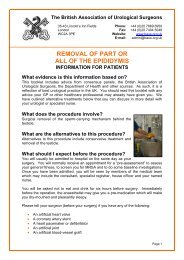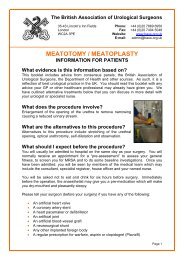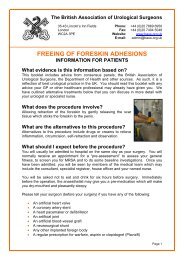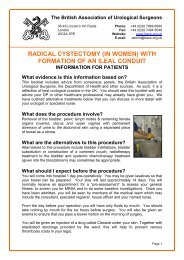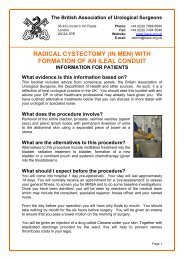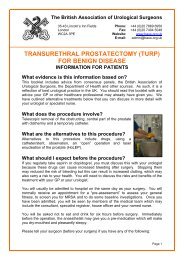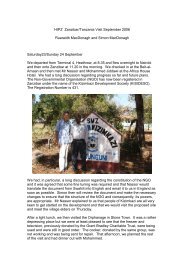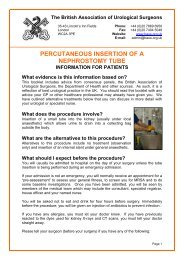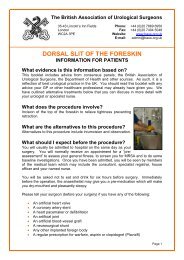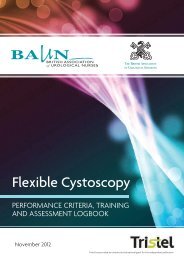MDT (multi-disciplinary team) guidance for managing prostate cancer
MDT (multi-disciplinary team) guidance for managing prostate cancer
MDT (multi-disciplinary team) guidance for managing prostate cancer
Create successful ePaper yourself
Turn your PDF publications into a flip-book with our unique Google optimized e-Paper software.
Approach within the <strong>MDT</strong><br />
Key questions <strong>for</strong> the <strong>MDT</strong><br />
• TNM stage?<br />
• Gleason grade?<br />
• Prostate-specific antigen (PSA) concentration?<br />
• Risk group (according to National Comprehensive Cancer Network [NCCN] guidelines)?<br />
• Age/co-morbidity/life expectancy?<br />
• Symptoms:<br />
o International Prostate Symptom Score (IPSS), bowel, urinary?<br />
• Sexual function?<br />
• Bone pain?<br />
• Osteoporosis risk?<br />
• Family history?<br />
• Clinical trials?<br />
• The <strong>MDT</strong> is an essential part of <strong>cancer</strong> management. However, there are often difficulties in<br />
knowing which patients to discuss, ensuring that their details and diagnoses are available,<br />
and keeping a record of decisions made at the meetings.<br />
• <strong>MDT</strong>s have repeatedly been endorsed as the principal mechanism <strong>for</strong> ensuring that all relevant<br />
disciplines and professional groups contribute to, and participate in, decisions regarding the<br />
clinical management of patients. 2<br />
• <strong>MDT</strong>-working is positively related to a range of measures of effectiveness, including the quality<br />
of clinical care.<br />
• It is important to emphasise the distinction between management and administration.<br />
• A central concept of integrated care is to rein<strong>for</strong>ce the role of the <strong>MDT</strong> (working as a single unit),<br />
but with enough clinical freedom to tailor management strategies to the needs of individual<br />
patients.<br />
• Treatment strategies are influenced by the stage of disease and by an interaction between<br />
the risk of disease progression, survival and key patient characteristics, such as age, lifestyle<br />
and general health. The discussion of these factors is of crucial importance in determining the<br />
most appropriate way <strong>for</strong>ward. For example, age and the presence of co-morbidities may be a<br />
restrictive factor when considering surgery.<br />
• The case notes, pathology reports, test results and radiology <strong>for</strong> each patient must be available<br />
to be discussed at the meeting. The <strong>MDT</strong> must also ensure that the patient has the fullest possible<br />
role in determining treatment − the importance of this cannot be overstated. Patient preference<br />
should be discussed within the <strong>MDT</strong>. Although the majority of men with <strong>prostate</strong> <strong>cancer</strong> want to<br />
be involved in treatment decisions, an estimated one in five of all patients does not raise, or really<br />
understand, the potential issues and associated side-effects of treatments and alternatives that<br />
may be available to them. 3<br />
• The possibility of including a patient in a relevant clinical trial should not be <strong>for</strong>gotten.<br />
10


